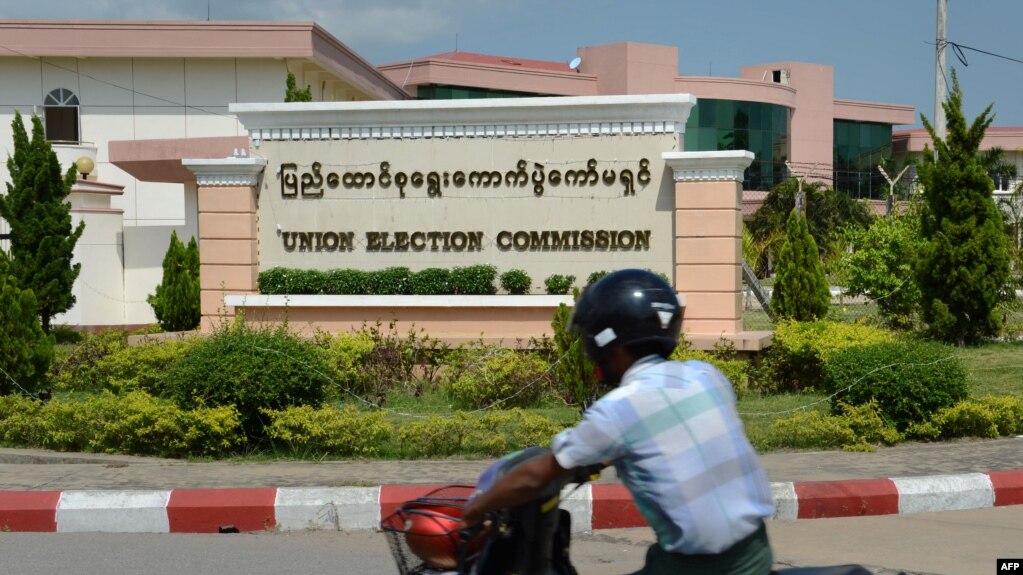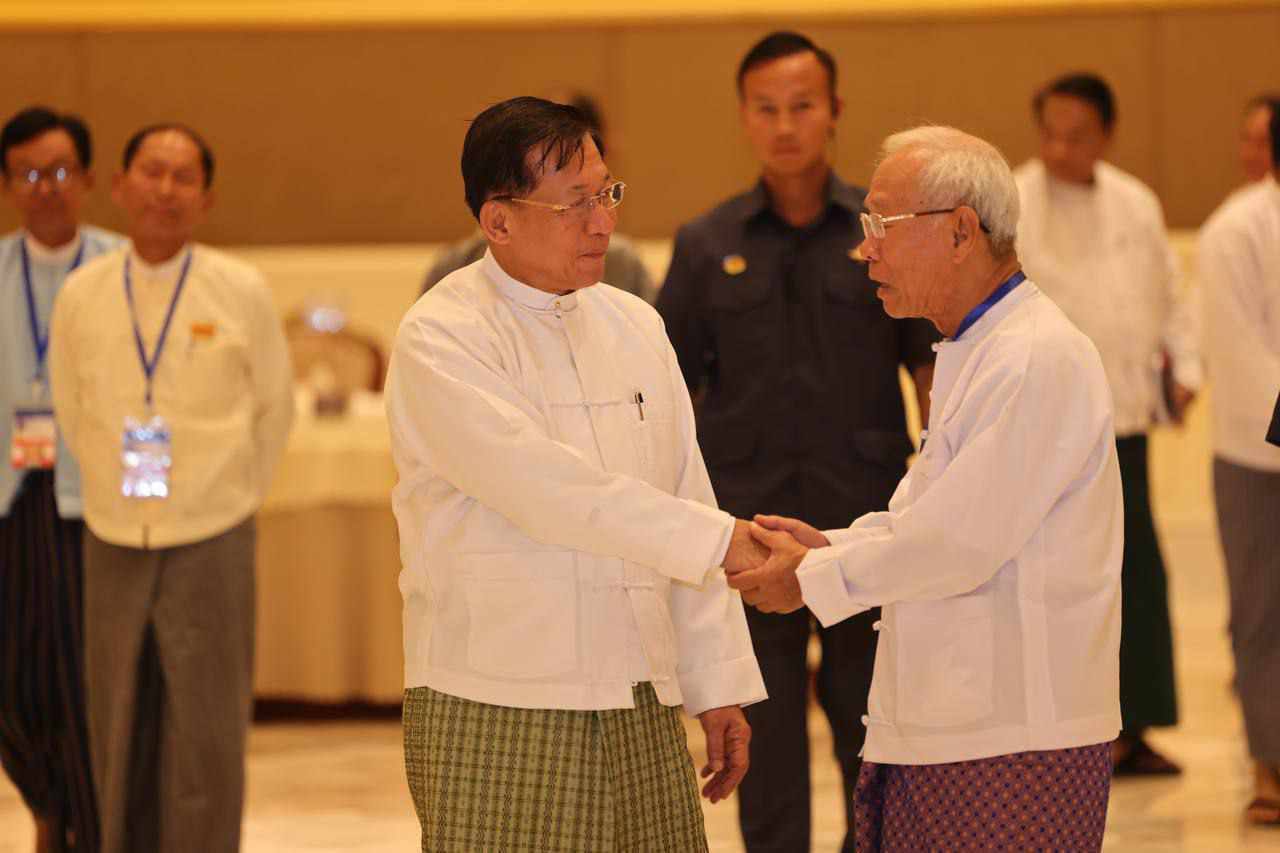CNI News
19 September 2025
Due to restrictions, prohibitions, and requirements imposed by the Union Election Commission (UEC), political parties will have to compete in the upcoming elections with only limited opportunities, said Myanmar political analyst Dr. Aung Myo in an interview with CNI News.
On September 9, the UEC announced the dissolution of three parties for failing to meet the required number of members and offices to qualify for nationwide competition.
The UEC had earlier stated to CNI News on September 10 that any political party which fails to field candidates in all 417 constituencies nationwide will be dissolved.
According to Dr. Aung Myo, the current situation leaves political parties dependent on the status granted by the UEC, and therefore they should not expect concessions:

Union Election Commission office
“I feel particularly sorry for the dissolved parties. However, we should not be asking for favors or adjustments at this point, because the current reality is that political parties must operate within the framework permitted by the UEC. Given this position, what matters most is to make use of what opportunities we still have, and to rebuild democracy in the country as best we can. Our desire is to do it properly. So even if elections are held only halfway, or only in the cities, if parties cannot compete, then individuals will have to contest as independents. That path will remain open. That’s why I don’t want to say whether the UEC’s restrictions are good or bad—I only feel deeply sorry. In the end, individuals will just have to compete with whatever small opportunities they can get.”
Myanmar plans to hold the first phase of elections in 102 townships on December 28, 2025. On September 14, the UEC announced the timelines for candidate nominations, scrutiny, and withdrawals.
According to the announcement, candidate nominations for constituencies in various legislatures will be accepted from September 8 to September 22. Candidate withdrawals must be made no later than September 17. In the case of proportional representation (PR) constituencies, if a party withdraws a candidate, replacements can be submitted from September 18 to September 22.

Senior General Min Aung Hlaing meeting with political parties
For parties contesting in only one state or region, the requirement is 1,000 party members and five offices in five townships within that state or region. Parties contesting nationwide must have 50,000 members, 110 offices, and field candidates in more than half of all constituencies.
U Khun Sai, a peace process participant, told CNI News that this situation favors the Union Solidarity and Development Party (USDP):
“It’s unfortunate, but it is what it is. We can’t avoid this reality. What it means is that the USDP is now even more certain to win. This is comparable to the 2010 elections. At that time, since the NLD did not participate, the USDP was guaranteed victory. Similarly, in the coming December elections, the USDP is even more likely to win. It’s not surprising.”, he said.
Currently, more than 50 political parties have been registered: six for nationwide competition and 52 for state or regional competition only.
The UEC stated on September 10 that it will proceed according to the laws in place to ensure only qualified representatives are elected into parliament.




